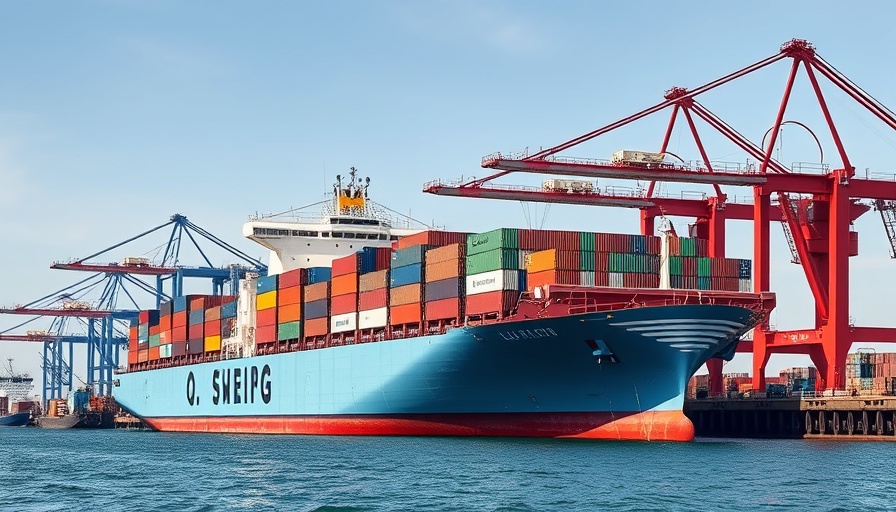
Port of Los Angeles Faces Historic Shipment Decline Amid Tariff Tensions
The Port of Los Angeles, a critical hub for cargo shipments, has recently experienced a troubling 30% decline in shipments during early May. This significant drop is attributed to the ongoing ramifications of the Trump-era tariffs on imports, particularly from China. With the latest figures indicating this downturn, business professionals need to take notice of the impact these trade policies can have on operational decisions.
Understanding the Current Impact of Tariffs on Trade
Tariffs are taxes imposed on imported goods, which can lead to increased costs for businesses and consumers alike. The recent decline in shipments is not merely a numeric statistic; it represents lost opportunities for local businesses that rely on international trade. Companies may face rising costs of materials and challenges in maintaining profit margins as these tariffs affect supply chain logistics across various sectors.
The Relevance of Supply Chain Disruptions
Supply chain disruptions are not new, but this recent significant decline accentuates the challenges faced by businesses in the shipping and logistics sectors. Understanding how to navigate these hurdles effectively while adapting to changing regulations is essential. Businesses may explore diversifying their supply chains, seeking alternative providers, or investing in technology to streamline their operations and mitigate costs hit by tariffs.
Future Predictions: A Volatile Trade Environment
As long as these tariff policies remain in place, experts predict a continued volatility that will challenge the resilience of businesses dependent on international supply chains. Analysts advise businesses to stay actively informed on trade policy changes and adapt their strategies to bolster their competitive positioning. Additionally, tech innovations are likely to play an increasing role in enhancing efficiency in logistics and shipping.
Actionable Insights for Business Professionals
For business professionals, now is the time to audit supply chain strategies and evaluate risk factors associated with tariff-induced disruptions. Companies should also watch for emerging trends in the tech industry that promise improved logistics solutions. By staying informed, businesses can pivot effectively, ensuring they are not left behind as the landscape evolves.
 Add Row
Add Row  Add
Add 



Write A Comment